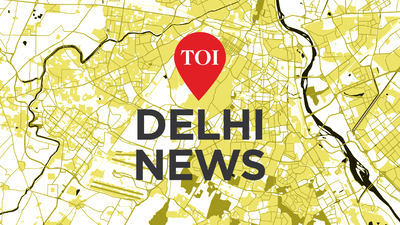- News
- City News
- delhi News
- Big shift: BJP steers clear of polarisation, focuses on freebies, AAP’s ‘graft’
Trending
Big shift: BJP steers clear of polarisation, focuses on freebies, AAP’s ‘graft’
New Delhi: Compared to the previous assembly election where BJP ran an intense campaign in the backdrop of the anti-CAA protests, sparking controversies through statements by its functionaries, the party's electoral strategy this time has seen a major shift.
The 2025 campaign started with functionaries highlighting the "anti-incumbency sentiment" against AAP govt and criticising renovation of Arvind Kejriwal's former residence, terming it ‘Sheesh Mehal' and sharing several videos to portray it as a luxurious indulgence. According to party functionaries, this vigorous campaign was strategically aimed at challenging AAP's fundamental principles, particularly its image of simplicity.
"Kejriwal's statement that he is a common man who does not believe that leaders should take large bungalows and cars was widely celebrated when he debuted in politics. This helped us target that holy image that AAP built over the years," said a BJP functionary.
As far as freebies were concerned, in a major departure from its 2020 campaign where it kept its stand largely vague, this time BJP actively competed with AAP. If AAP promised women Rs 2,100 monthly, BJP announced Rs 2,500 in its Mahila Samriddhi Scheme. On free electricity and water or travel in DTC buses, the party made it clear it would continue these schemes, which was underlined by PM Modi too at a recent public gathering.
This time, BJP's campaign was consciously designed to avoid polarisation; the strategy did not yield results for it in 2020 as it ended up getting just eight seats. Even in volatile areas such as North East Delhi, the focus remained primarily on addressing corruption charges against Kejriwal and senior officials. At one public assembly, minister Shivraj Singh Chouhan, addressing the audience, uttered the slogan, "Ek rahoge to safe rahoge, aur batoge to katoge," but this did not dominate the electoral discourse.
BJP's campaign was widely reflected in Modi's speeches in the run-up to the polls. Calling it ‘AAP-da' (disaster), he alleged AAP was responsible for Delhi lacking development and targeted Kejriwal over construction of ‘Sheesh Mehal." He also focused on outreach to slum-dwellers as well as issues affecting residents, like cleaning of Yamuna.
BJP also highlighted the Union Budget as a "revolutionary decision", claiming 85% of taxpayers in Delhi would not have to pay any tax. It highlighted that Budget provisions for gig workers, including health insurance, would benefit many Delhi residents.
A senior BJP official involved in the strategy team told TOI: "This time, we chose precise strikes over blanket bombardment. There have been constituency-wise contacts with the help of RSS cadres. We did bring several functionaries and former CMs for carpet bombing, but only in the last leg. Our focus was on bringing neighbourhood issues centrestage as people are upset with road and water conditions."
BJP strategists also perceive a tactical advantage after losing MCD polls, as AAP previously redirected sanitation-related criticism towards the saffron party, citing jurisdiction.
According to party insiders, the strategy of deploying former MPs Parvesh Verma and Ramesh Bidhuri to challenge AAP's Kejriwal and Atishi is more effective. "It was almost a walkover last time in New Delhi constituency when we fielded Sunil Yadav, who was a relatively unknown face," a party official said. AAP has been repeatedly taking on Verma and alleging poll malpractices by him.
Internal sources, however, acknowledge the timing of direct monetary transfer scheme for women could have been "better planned". AAP's initiative, announced a month before elections, gave it additional time to promote the programme.
End of Article
FOLLOW US ON SOCIAL MEDIA
Visual Stories
Hot Picks
TOP TRENDING
Explore Every Corner
Across The Globe
Royal Rumble 2025 ControversyNBA Trade RumorParliament Budget SessionBudget Tax Rules for NRILamelo Ball
Delhi ElectionFox Reporter Erin AndrewRoyal Rumble 2025 Winners ListNew Tax Regime vs Old Tax RegimeCanada Bans US Firms











